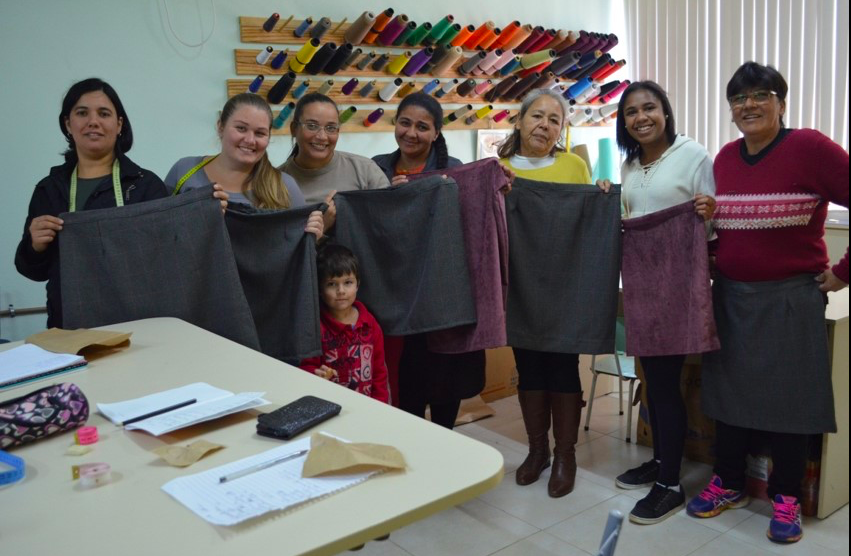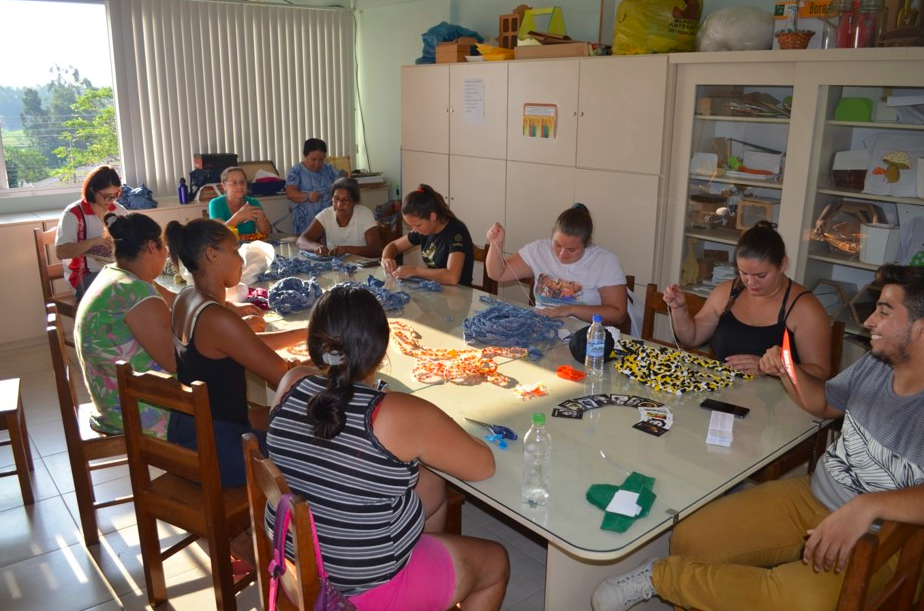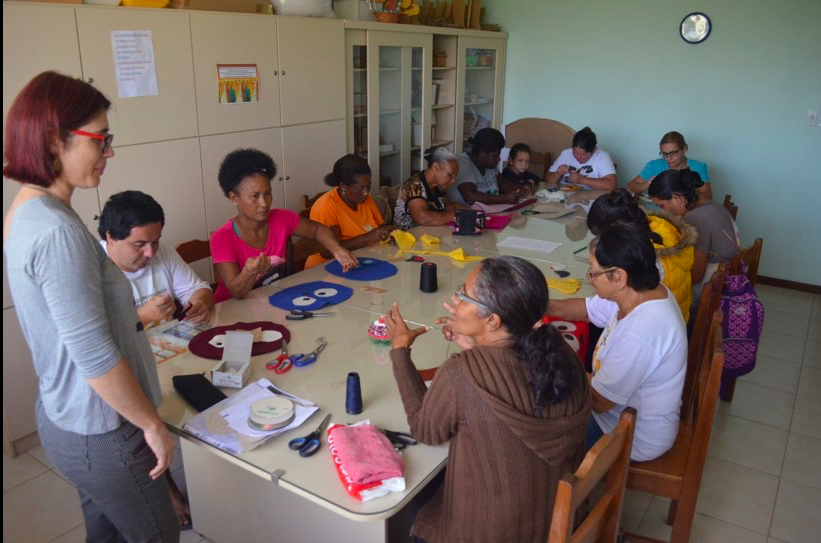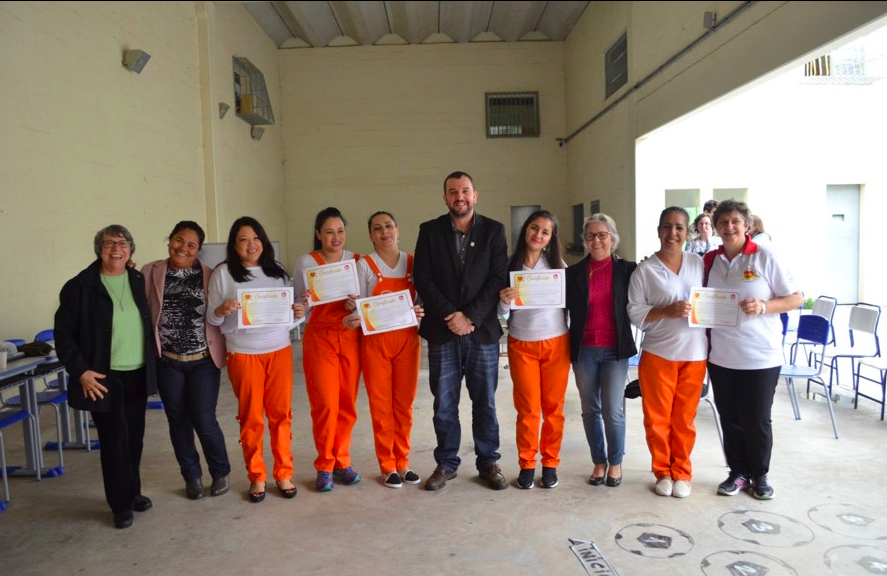Brazil
Empowering Women
$7,950 Goal
| Women become agents of influence in their community through workshops and a work cooperative |
The Situation
In Guaiba, Brazil, according to official data, 32% of the resident population have no income. In this situation of poverty, lack of development and a culture of submission, women are the people who suffer the most from oppression, discrimination and a history of dependency and exclusion.
The Sisters’ Response
The Sisters of St Joseph with the participation of volunteers and community leaders have played a significant role in promoting women’s rights in Guaiba and other nearby communities since 1987. Through the St. Joseph Beneficent Association founded and operated by the sisters, they provide a gathering space for the development of human potential and the exercise of citizenship, especially for women.
The sisters hope to offer weekly sessions to 60 women that will turn them into agents of influence in their community. This project will provide training workshops for inclusion, empowerment, access to and mastery of information technology and promotion of citizenship for women. The workshops have a dual strategy of empowering women to be leaders in their communities while also offering work training with sewing, production of handicraft items with recycled materials, and computer workshops.
“Empowerment allows women to seek productive inclusion and social reintegration, raising self-esteem and coping skills in situations of poverty and social vulnerability.”
Sr. Nilva Dal Ball
Funds Needed: $7,950
How the funds will be used:
• $2,250 for a staff person for one year
• $5,000 for consumable materials
• $700 for the training course
The sisters hope to offer weekly sessions to 60 women that will turn them into agents of influence in their community. This project will provide training workshops for inclusion, empowerment, access to and mastery of information technology and promotion of citizenship for women. The workshops have a dual strategy of empowering women to be leaders in their communities while also offering work training with sewing, production of handicraft items with recycled materials, and computer workshops.
Systemic Goal
Reduce extreme poverty and social inequalities, and promote gender equality and the empowerment of women. Improve living conditions in poor neighborhoods, insure access to the labor market for women and their participation in the wider expectation of the promotion and defense of their rights in society.
“The impacts of this action are the social and economic advancement of women through learning productive activities, saving families and community ties through job training, in addition to reaching self-esteem, overcoming prejudice and cultural submission.” —Sr. Angela Maria Ribas




